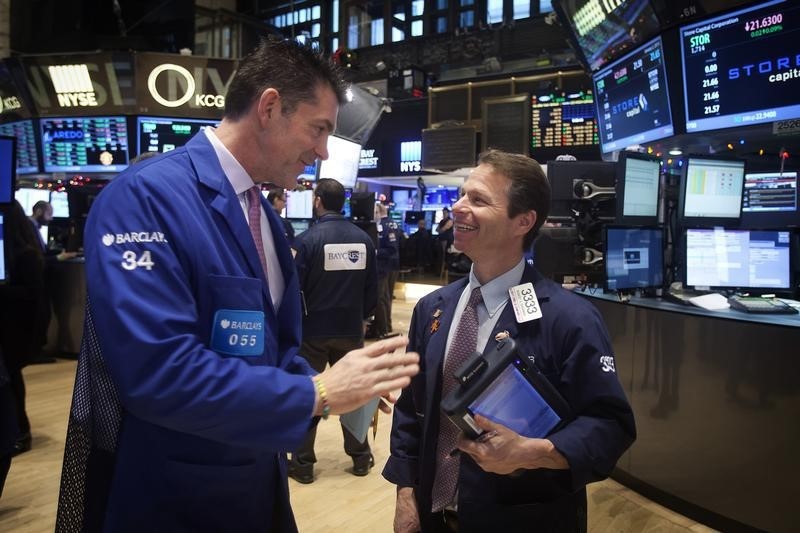By Ryan Vlastelica
NEW YORK (Reuters) - U.S. stocks rose on Monday as a weaker-than-expected jobs report was seen as postponing the Federal Reserve's first interest rate increase in nearly a decade.
Global trading was limited, with major European markets closed for the Easter holiday. The U.S. stock market is coming off a trading holiday on Friday, which is when the jobs report was released; Monday is the first session U.S. traders have been able to trade off the data.
The report showed 126,000 jobs were created in March, well below economists' expectations and the fewest added in more than a year. Separately, ISM data on Monday showed the pace of growth in the U.S. services sector fell to a three-month low in March.
The Federal Reserve has said it would begin raising rates when it deems the economy strong enough to withstand such a move. While the data pointed to a loss of momentum in U.S. growth, it also suggested the Fed may push back its first rate hike until further in the year.
New York Fed President William Dudley said the U.S. central bank will need to determine whether that jobs report foreshadows a more substantial slowing in the labour market, adding he expects the path of rate hikes to be "relatively shallow."
"There's some relief that the weak report points to more patience by the Fed, and possibly an end to the strength in the dollar, which has been a real problem for growth," said Hayes Miller, the Boston-based head of asset allocation in North America at Baring Asset Management.
Expectations the Fed will raise rates this year have fuelled the dollar's rally since mid-2014, though recent weak data has eased concerns it would strengthen further.
The U.S. dollar index (DXY), which measures the greenback against a basket of currencies, rose 0.17 percent on Monday, recovering modestly from a drop of 0.2 percent earlier in the session. The recent trend in the index has been weak; it fell nearly 2 percent over the final three trading sessions of last week.
The euro
The Dow Jones industrial average (DJI) rose 172.67 points, or 0.97 percent, to 17,935.91, the S&P 500 (SPX) gained 19.41 points, or 0.94 percent, to 2,086.37 and the Nasdaq Composite (IXIC) added 41.34 points, or 0.85 percent, to 4,928.28.
MSCI's all-country world index (MIWD00000PUS), a measure of stock performance in 46 countries, rose 0.9 percent.
U.S. Treasury debt prices fell, giving up gains from the previous session, on the unexpectedly weak nonfarm payrolls. The price of U.S. 10-year Treasuries (US10YT=RR) fell 19/32, pushing up yields to 1.9021 percent.
Gold prices
Oil soared as traders reassessed how quickly Iran might increase exports after a preliminary nuclear deal and anticipated that a months-long rise in U.S. crude inventories may be slowing.
U.S. crude prices remain down more than 50 percent from a peak hit in June, with oversupply a key driver. While an agreement with Iran would add to supply, "people betting on Iran's oil arriving tomorrow realize they may have to wait up to a year," said Phil Flynn, analyst at Price Futures Group in Chicago.

Brent crude for May delivery